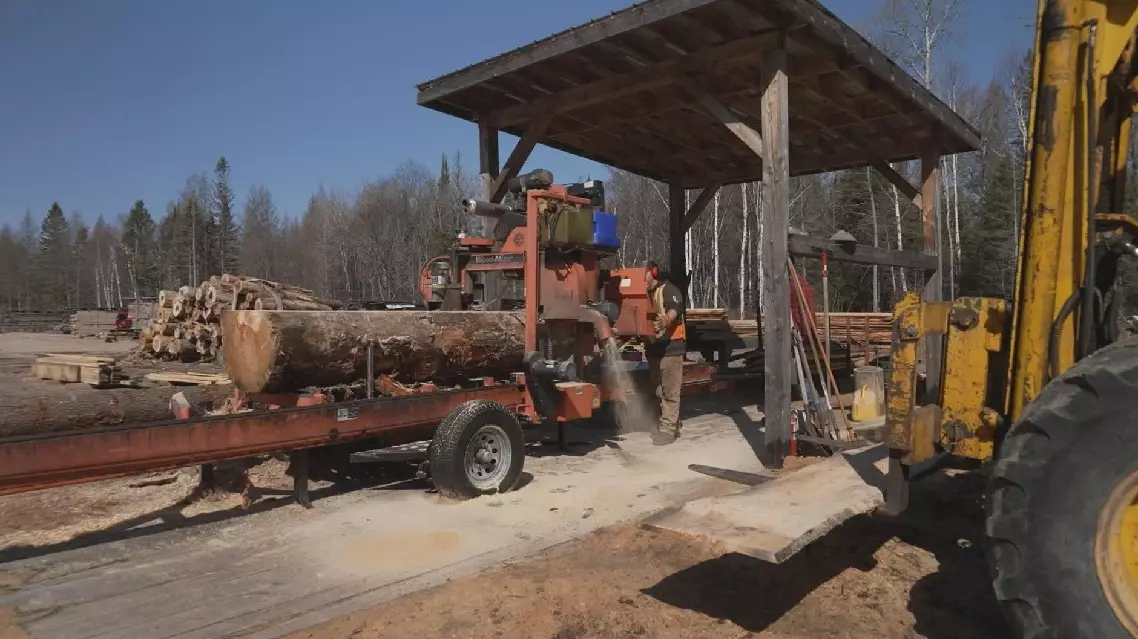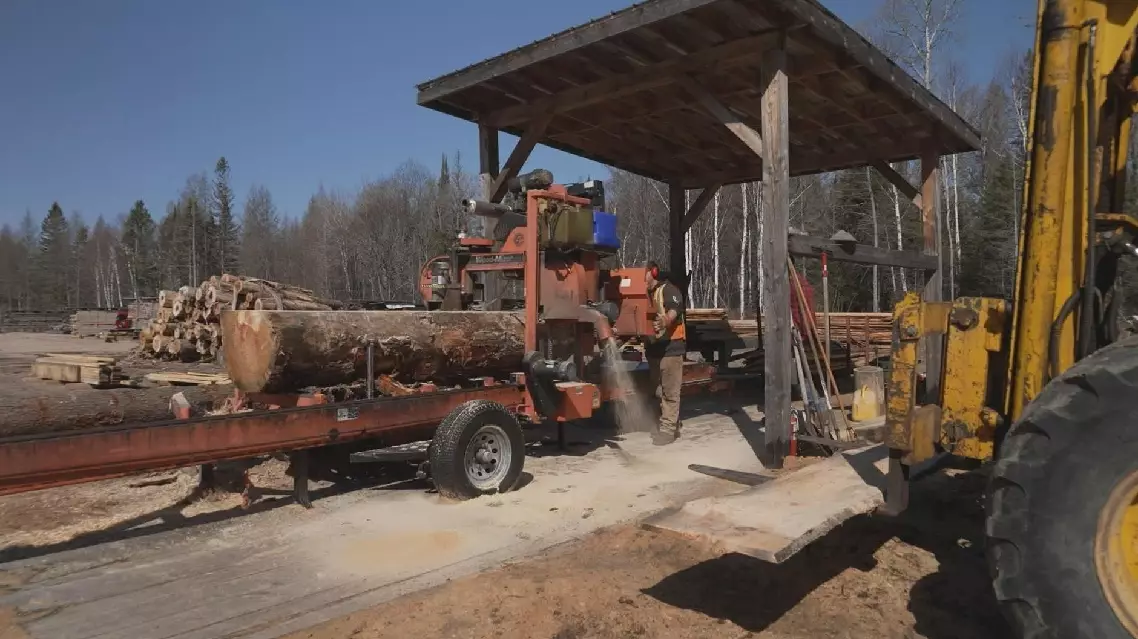Canada's century-old lumber industry faces mounting pressure as U.S. tariffs on Canadian softwood exports are set to more than double by October, threatening rural communities built on forestry while potentially accelerating a domestic shift toward addressing Canada's own housing crisis.
Softwood lumber, a key export, is currently subject to a 14.54-percent U.S. tariff, but this rate is expected to more than double to 34.45 percent later this year, with a potential additional 25-percent tariff at some point threatened by U.S. President Donald Trump.
In Sundridge, Ontario -- the largest Canadian province, a lakeside community nicknamed the "Pearl of the North", Tim Bryson's family has been logging since 1878. But the challenges for the industry have mounted in recent years. Bryson watches the trade dispute unfold with concern.
"Certainly, the 2009-kind of global recession was a housing crisis that happened in the (United) States, [and that] reverberated all around the world and ever since then, it's been tough, for sure," he said.
The industry is big business. Last year Canada exported some 15 billion dollars' worth of lumber and other sawmill products to the United States. But over the last decade, several Canadian mills have moved their operations to the U.S., hollowing out Canada's output. Against that backdrop, there's a further challenge from the trade dispute between the U.S. and Canada. Tariffs on Canada's lumber exports to the U.S. threaten to undermine the industry.
"I think it's an existential threat to rural communities all over Canada. Sometimes you go north and they're just one-horse towns. The whole town is built on the forest industry. It's not just the logger or the saw mill, but then it's the restaurants. It's hard to understand the actual impacts," said Bryson.
The ripple effects already reach beyond mills to Main Street businesses. Gift shop owner Margaret McDonald shared, "I think it trickles down the line. I think it starts with the logging industry in this area. It's quite prevalent. So when one industry gets hit with tariffs, we all feel the brunt of it, because it does trickle down the line."
Canada's lumber sector has shed thousands of jobs in recent years, with many mills relocating south of the border.
Yet Bryson sees potential silver linings. With Canada grappling with severe housing unaffordability, he suggests redirecting lumber inward.
"We have more room here in Canada than just about any place in the world, and more wood to build houses with. Yet we have a housing crisis. There is an opportunity for us to build kind of a nation, build the housing here. I think it is time for us to really look in the mirror and start fixing our own problems here," he said.
In the meantime, Bryson continues the hard work of logging. But he's hopeful that, at some point, demand for his products will increase significantly within Canada's borders.

Canadian lumber industry braces for steep US tariff hikes

Canadian lumber industry braces for steep US tariff hikes





















































